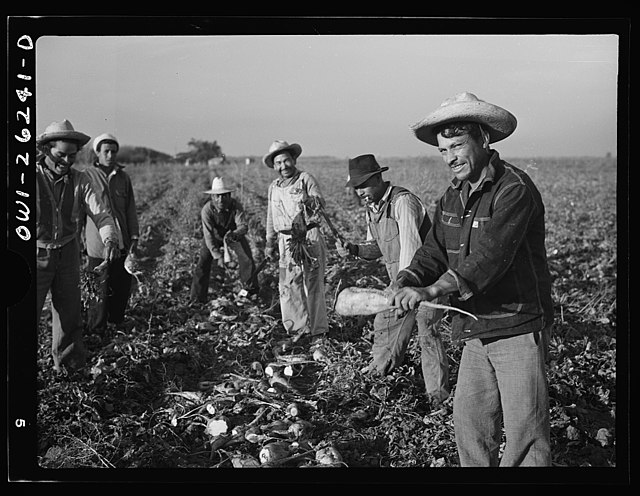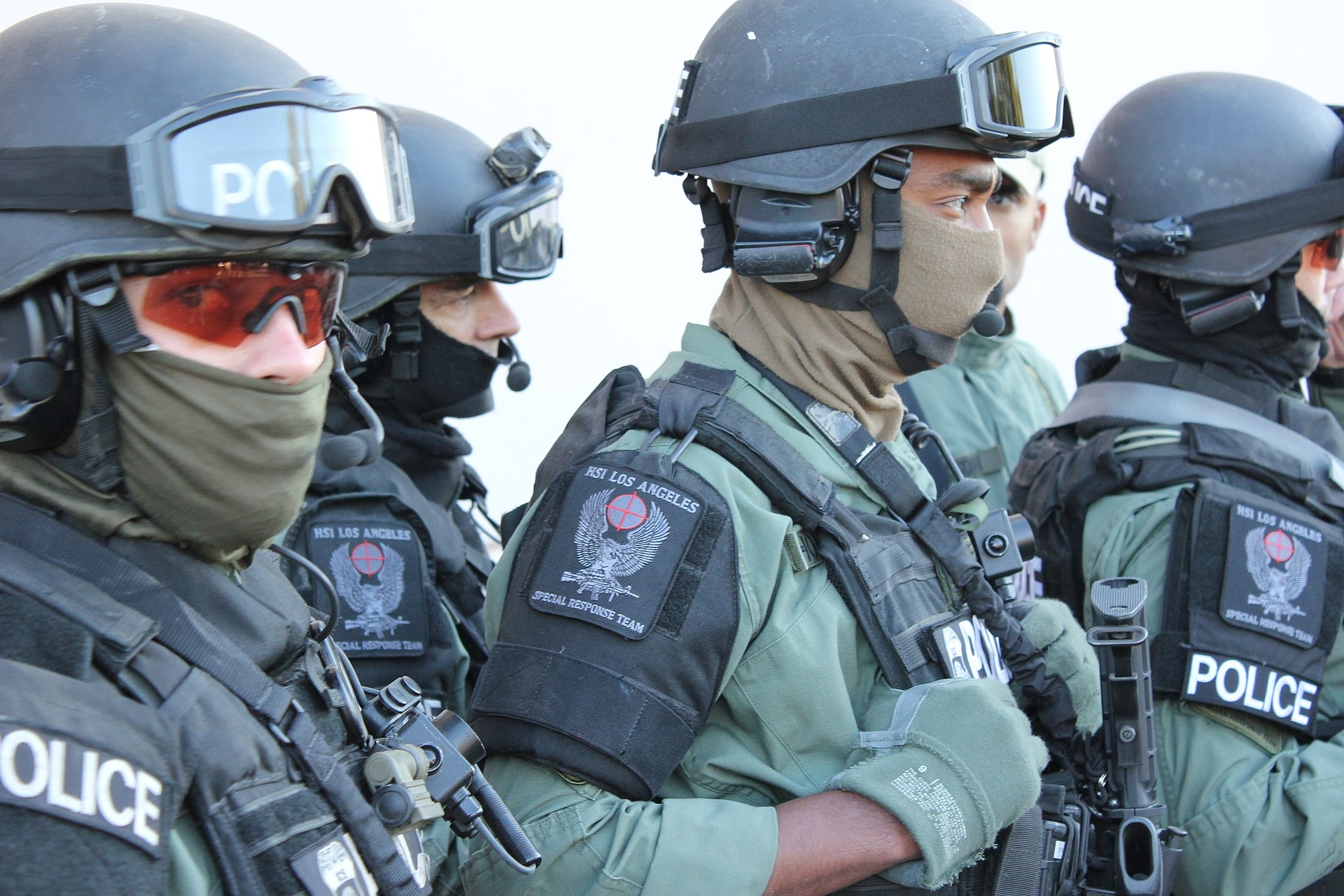
Journalist and author Julie K. Brown from the Miami Herald’s Investigative Team, joins This Is Hell! to talk about her work uncovering and investigating the Epstein Files, which can be found on her Substack, where she is still breaking new stories on the case.
We will have new installments of Rotten History and Hangover Cure. We will also be sharing your answers to this week's Question from Hell! from Patreon.
Help keep This Is Hell! completely listener supported and access bonus episodes by subscribing to our Patreon.
Welcome to the Moment of Truth: the thirst that is the drink.
I didn’t watch the Democratic debate, part 1. I decided I’d prefer to catch up the next day, piecing the event together from memes on Twitter. Find out what the jokes are and mentally reverse engineer them to build a vague impression of the inciting incidents. Because everyone knows that, whatever members of the Twublic are making the most persistent jokes about, that’s what will be setting the larger public’s nerves vibrating throughout the news cycle.
The first meme I encountered was Beto speaking Spanish, while the camera slowly dollied in on Cory Booker’s amusingly taken-aback face, looking wide-eyed and side-eyed at Beto, as the Curb Your Enthusiasm theme played. I love those Curb memes. I hate to see the passing of the Sad Trombone, but the Curb theme says so much more. It says your discomfort is comically petty, yet at the same time there’s something serious, perhaps even sexually threatening, underlying it. Something transgressive, maybe fatal. Maybe you, on whom the camera is dollying in, have transgressed, and been exposed, if only to yourself, or perhaps your perturbation is due to a transgression on the part of the person you are observing, whose words or actions are causing your comical expression, a transgression of which only you, with your particular knowledge or singularly-informed pettiness, can understand the full significance.
And, of course, the entire situation is a comment on the myriad shallow frustrations of contemporary life. It conveys a comical disgrace far more fraught than any sad trombone can express, or indeed any morose, put out, or discomfited member of the brass section. Larry David has given post-modernism its last great cultural gift. That is, late post-modernism. The worst kind of post-modernism, a used-up post-modernism, worn like a groove in a broken record, to put things in a vinyl idiom. A post-modernism completely out of ideas. A post-modernism sorely in need of cultural gifts. Thank you, Larry.
Booker’s face as he observes Beto’s Spanish soliloquy says it all. “Oh no he di’n’t. That white boy did not just take the reins of the people-of-color bandwagon with his fluent Tex/Mexspañol.” Don’t worry, Cory, we all know what’s going on. We’re watching. We know Beto is only barely... read more

Listen live from 9AM - 1:00PM Central on WNUR 89.3FM / stream at www.thisishell.com / subscribe to the podcast
9:20 - Live from Caracas, journalist Lucas Koerner reports on the media disinformation campaign aimed at Venezuela.
Lucas wrote the article There’s Far More Diversity in Venezuela’s ‘Muzzled’ Media Than in US Corporate Press for FAIR.
10:05 - Activist Andy Thayer explains what LGBT activism has lost - and must relearn - since the Stonewall uprising.
Andy wrote the article Why Stonewall Matters Today for Jacobin.
11:05 - Organizer D Hunter explores struggle and solidarity on the wrong side of the class war.
D is author of Chav Solidarity. D is raising funds for Lumpen: A Journal of Poor and Working Class Writing. Help him out.
12:05 - Writer Nathaniel Rich traces a 40 year history of knowing everything and doing nothing about climate change.
Nathaniel is author of Losing Earth: A Recent History from MCD Books.
12:45 - In a Moment of Truth, Jeff Dorchen reviews the memes of the first Democratic debate.
Welcome to the Moment of Truth, the thirst that is the drink.
After decades of failing to perfect it, humans still can’t admit that artificial intelligence is pretty stupid. Artificial intelligence is about as intelligent as artificial flowers are floral or artificial fruit is fruity. My favorite thing about humans trying to create artificial intelligence is our penchant for denial. We’re great at denying that things are going terribly wrong. Witness our reaction to global warming.
Have you seen HBO’s Chernobyl? All the young Stalinists today are calling it “anti-Soviet propaganda,” as if propaganda were necessary to find a totalitarian thought-policing bureaucracy unpalatable. Anyway, whether it hews to reality or not, it’s a great story of idiots in denial finally brought face-to-face with their hubris of thinking they can control technology.
Now, I don’t want to be a knee-jerk alarmist. People are so worried about artificial intelligence controlling us. I notice no one is worried about artificial legs walking all over us, or dentures biting us to death. And, listen, we’re going to need artificial intelligence as our natural intelligence rots and falls off. Which it seems to have been doing forever. You know who thought so? Seneca. Or Cicero. One of those bastards. Diogenes!
But we must recognize when enough is sufficient.
I saw a video of a robot being hit by humans with rods, wobbling a bit unsteadily but regaining its stability, taking the rods away from its assailants, then threatening to thrash them if they tried to attack again. One woman’s comment to this video, “Can we stop being mean to robots?” My comment, “Can we stop improving robots?” Because people act like it’s inevitable that robots are going to get more agile and effective. It’s not inevitable. We can say, “I don’t want to live in that Black Mirror episode where the robot dogs hunt people down. Don’t build those!”
It’s not whether you can think your way out of the paper bag, it’s with what style you get out of the paper bag, and what origami shape you fold the leftover bag into. Wait, no it’s not. It’s best to avoid getting trapped in the paper bag in the first place.
Think about the Turing test. Just think about it. There, you’ve already done more than the Turing test requires from a computer. All... read more

Listen live from 9AM - 1:00PM Central on WNUR 89.3FM / stream at www.thisishell.com / subscribe to the podcast
9:20 - Law scholar Katherine Franke examines the radical potential of reparations for Black Americans.
Katherine is author of Repair: Redeeming the Promise of Abolition from Haymarket Books.
10:10 - Writer Akemi Johnson explores the lives of Okinawan women living under US occupation.
Akemi is author of Night in the American Village: Women in the Shadow of the U.S. Military Bases in Okinawa from The New Press.
11:10 - Writer Zillah Eisenstein explains why the next revolution must be feminist and abolitionist.
Zillah is author of Abolitionist Socialist Feminism: Radicalizing the Next Revolution from Monthly Review Press.
12:00 - Journalist Aviva Stahl reports on isolation, torture and secrecy in an American prison.
Aviva wrote the report Force-Feeding Is Cruel, Painful, and Degrading—and American Prisons Won’t Stop for The Nation.
12:45 - In a Moment of Truth, Jeff Dorchen thinks about AI, and how stupid it is.

Listen live from 9AM - 1:00PM Central on WNUR 89.3FM / stream at www.thisishell.com / subscribe to the podcast
9:20 - Writer Ted Genoways explores disaster politics, agriculture and austerity in a flooded Midwest.
Ted wrote the article River of No Return for The New Republic.
10:05 - Cultural critic Mithu Sanyal deconstructs a 2,500 year history of rape in our culture.
Mithu is author of the book Rape: From Lucretia to #MeToo from Verso.
11:10 - Chicana/o studies scholar Genevieve Carpio explores the intersection of spatial mobility and racial formation.
Genevieve is author of the book Collisions at the Crossroads: How Place and Mobility Make Race from University of California Press.
12:10 - Live from São Paulo, Brian Mier reports on mass student and teacher strikes across Brazil.
Brian reported on the 1.8 million large strike wave for TeleSur English's program From The South.
12:45 - In a Moment of Truth, Jeff Dorchen reads an interview with a monster.
Welcome to the Moment of Truth, the thirst that is the drink.
This is going to be a mere sliver of the mansion of love and mourning and celebration and remembering that the world’s people who knew Danny Thompson are revisiting right now and will probably carry on revisiting forever. My sliver. And it’s okay if this is only a small fragment of the lore and legacy of Danny E’ward Beano Q. Slotkins Esteban Vincente Harriett Beecher Stowe Thompson.
I don’t know if you’ve been paying attention to the Theater Oobleck extended family social media reverberations, but we lost the father and scientist and friend and advisor and brother and stylist and baby and craftsman of us all, Danny Thompson, to a freak genetic ailment. On Monday night I heard he was in the hospital, awaiting a new liver, but in no danger, and on Tuesday morning I woke up to an email to the Oobleck core company members group saying he had died. Mickle Maher was crying. I barely got out of bed that day. Death had to take him quick, I thought at one particularly stupid moment, because with more time he’d have figured out a way to escape the Dumb Reaper. That Reaper is a bozo. He’s not as good a chess player as he’s reputed to be, either. He’s not even grim, he’s just an asshole.
If you don’t know what you’ve lost, world, you’ve lost plenty. You’ve lost everything. You think this is an exaggeration. How wrong you are. Danny Thompson lived as he liked, and loved as he wished, and was just the all-around master of creative flow.
I met him in Ferndale, in high school, although I don’t think he was in high school anymore by the time I met him. Anyway, he went to a different high school than I did, when he did. I met him when I was in high school, but when he wasn’t in a different high school. I remember him having a car, a big powder blue muscle car with weird chrome ornamental spheres embedded in the hood. It had a Winnebago engine in it, he said. His mother’s boyfriend, Dan, was an auto- mechanic. Danny’s good friend Tony Rowe was a hybrid Native American who had been dishonorably discharged from the army. He’d been stationed in Korea patrolling the DMZ and had punched his CO and broken his jaw. They allowed him to avoid prison if he gave up all his veteran’s benefits. This is how I remember it. And Tony had a friend, Roy. And I’m... read more



